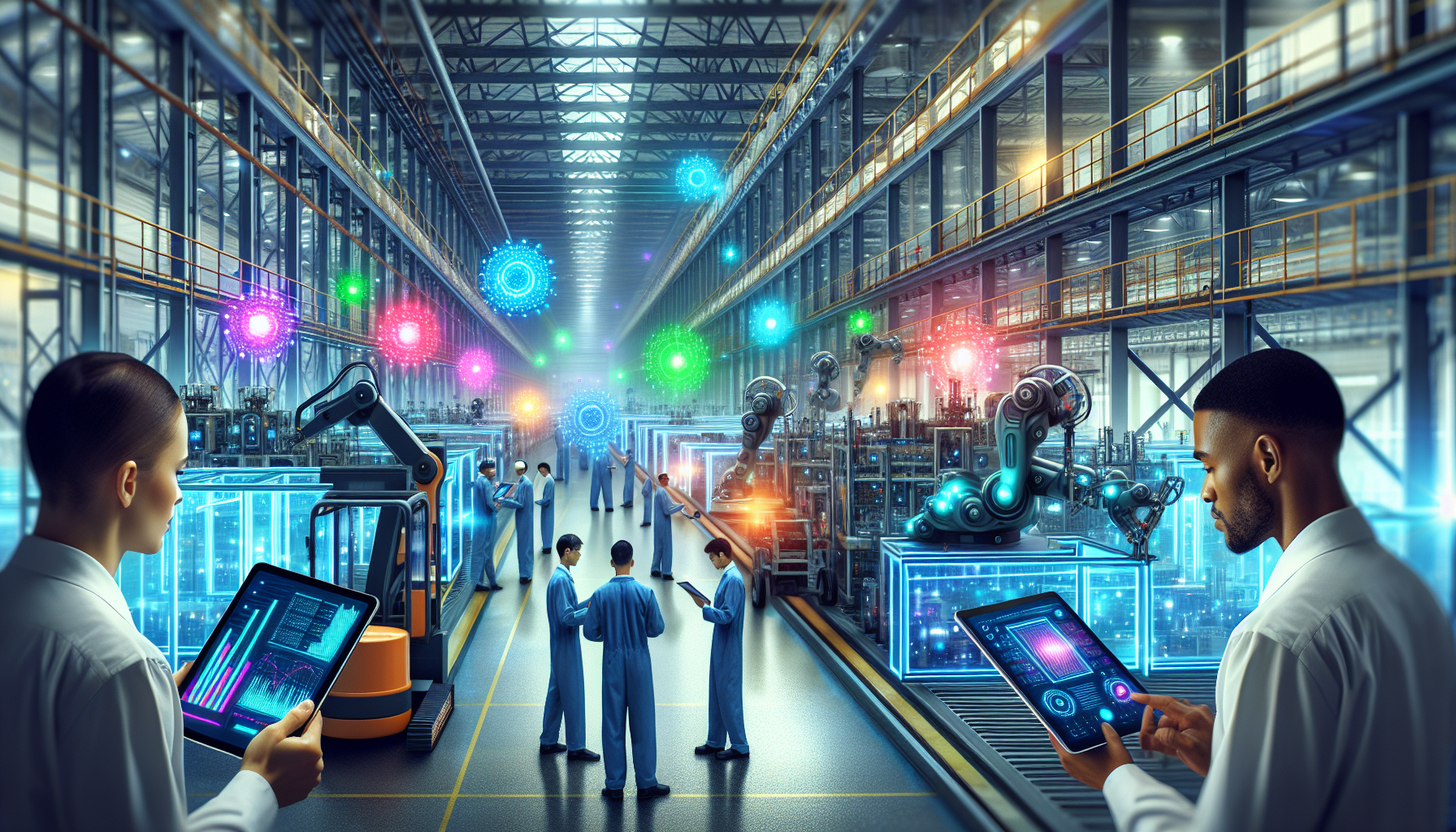Physical Address
304 North Cardinal St.
Dorchester Center, MA 02124
Physical Address
304 North Cardinal St.
Dorchester Center, MA 02124


Top Indian manufacturing companies are embracing artificial intelligence (AI) to enhance efficiency and safety. Leaders like Maruti Suzuki, Apollo Tyres, Godrej & Boyce, and Saint-Gobain are leveraging AI to streamline operations, cut costs, and reduce workplace incidents.
AI adoption in manufacturing is not just a trend; it’s a strategic shift. Companies are deploying AI for various tasks:
This shift underscores the broader trend of leveraging advanced technologies to drive productivity and operational excellence.
Apollo Tyres has achieved significant gains by integrating AI into their processes. For instance, the company has seen an 8-10% increase in efficiency by using data and AI/ML in the tyre compound mixing process. This integration has led to:
Hizmy Hassen, the chief digital and supply chain officer, highlights the success of their digitalization projects. Apollo Tyres has connected key production machines to the cloud using Internet of Things (IoT) technologies. They have created a data lake, streaming more than 1500 data elements in near real-time to the cloud to drive machine efficiency.
Godrej & Boyce is on a transformative journey, leveraging AI to optimize every aspect of their business. They are implementing AI-powered digital twins for:
These digital twins help simulate operations to gain efficiencies and reduce errors and costs. Vijay Balakrishnan, the chief digital and information officer, mentions they are also exploring the use of Employee Twins to enhance employee development and engagement.
Saint-Gobain has started using both predictive AI and Gen AI across various processes. The company plans to broaden AI use across all its operations. B Santhanam, CEO of Asia Pacific, states that AI investments have yielded significant returns. For new production lines, Saint-Gobain intends to use machines with preinstalled edge devices, which serve as interfaces between the data center and the real world.
AI has helped Saint-Gobain reduce customer complaints by five times in the last year. An AI-enabled camera delivering high-speed video analytics identified unseen defects in end products like glass and gypsum. Additionally, AI-enabled machines and devices have reduced the number of finger injuries and man-machine collisions.
Maruti Suzuki focuses on digitalization and automation. The company has set up a dedicated digital enterprise vertical to map areas where digitalization can be used. These solutions are deployed for internal systems and processes, as well as to enhance customer satisfaction.
Maruti Suzuki has deployed AI-powered virtual chatbots and an AI-based avatar on its corporate website to assist with customer interactions. They use voicebot AMIE to manage calls and chatbot KARA to engage customers on platforms like WhatsApp. Additionally, the company has digitalized the owner’s manual for all vehicle models.
The integration of AI in manufacturing offers numerous benefits:
The future of AI in manufacturing looks promising. As companies continue to invest in AI technologies, we can expect further improvements in:
With AI, manufacturing companies can stay competitive in a rapidly evolving industry.
The adoption of AI in manufacturing is revolutionizing the industry. Companies like Maruti Suzuki, Apollo Tyres, Godrej & Boyce, and Saint-Gobain are leading the way by integrating AI into their operations. This strategic shift not only boosts efficiency and reduces costs but also enhances safety and quality control. As AI technology continues to evolve, the future of manufacturing looks brighter than ever.